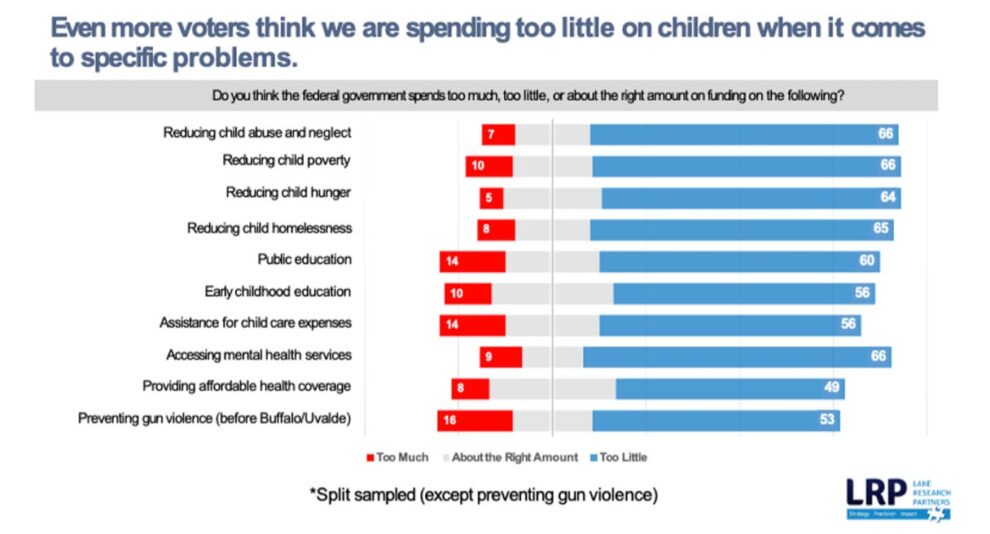
Remember when Congressional recess meant things got slower? Here’s a handy recess cheat sheet of important kid stuff to keep your eye on:
Last week’s big news — that the Administration plans to eliminate Head Start — was swiftly overtaken by a report this morning that the cuts at Health and Human Services will go much deeper. HHS reportedly will be asked to make $40 billion in cuts, or roughly one-third of its total discretionary budget. And who is funded overwhelmingly by discretionary spending? You guessed it. Kids.
The cuts reportedly specifically target childhood mental health services, programming around adverse childhood experiences, firearm injury and mortality prevention, childhood lead poisoning (seriously??!), youth violence prevention programs, preschool development grants and many other child-specific programs. As regular readers of this space know, cutting kids programs flies in the face of public sentiment, which overwhelmingly supports more — not less — spending on kids.

Our policy team and in-house economist are running the numbers on these proposed cuts and we’ll circle back shortly with analyses of the likely impact. For now, please see:
Eliminating Head Start: Bad for Kids, Bad for America: “Rarely has there been such a clear, targeted attack on children,” First Focus on Children President Bruce Lesley said as part of a larger statement.
Trump Administration’s Plan to Eliminate Head Start Threatens Child Care, Families, and the Economy: This misguided plan would eliminate high-quality, affordable child care slots at the very time there is a crisis in care across our country, write First Focus on Children child care experts Averi Pakulis and Lily Klam. The move would harm children, their families, early childhood professionals, and our national economy.
Of course, Administration officials already previewed the idea of eliminating Head Start in Project 2025.
On the other hand…just before recess, Sen. Tina Smith, along with Sens. Shaheen, Warnock, Murray and Wyden, introduced the Child and Dependent Care Tax Credit Enhancement Act. The bill would help ease the burden of high child care costs on working families by increasing the maximum tax credit to $4,000 per child, allowing families to receive up to $8,000 in tax credits to offset up to $16,000 in expenses. It would also make the credit refundable to ensure low-income working families can benefit.
Find a robust analysis of the Child and Dependent Care Tax Credit in our new report Child And Family Tax Policy: Improving Lives. The report outlines tax credits, deductions, savings accounts and other opportunities in the tax code that would provide financial stability for families and lift millions of children out of poverty. Reforming tax policies to better support families and children is critical to building a more equitable society.
Other new items from First Focus on Children include:
The Devastating Impact of Proposed Budget Cuts on America’s Kids
↳ FACT SHEET: First Focus on Children Staff: This fact sheet details the way budget proposals disproportionately harm children by targeting four major safety net programs that provide health care, nutrition, cash assistance, child care, and child welfare services to millions of low-income families.
The Status of Our Nation’s Children
↳ Congressional Testimony: Bruce Lesley, President of First Focus on Children: In recent testimony to the House Judiciary Committee, Lesley writes on the need for Congress to be concerned with disinvestment in our nation’s children and how it impacts their well-being and the country’s future.
No Child Should Go Hungry: The Fight To Protect School Meals
↳ BLOG: Lily Klam, Senior Director of Early Childhood and Education Policy: School meal programs play a vital role in curbing student hunger and make up less than 0.5% of annual U.S. federal spending. This blog highlights the need to maintain the Community Eligibility Provision and minimize additional administrative hurdles to ensure schools can provide free breakfast and lunch to all students who need them.
